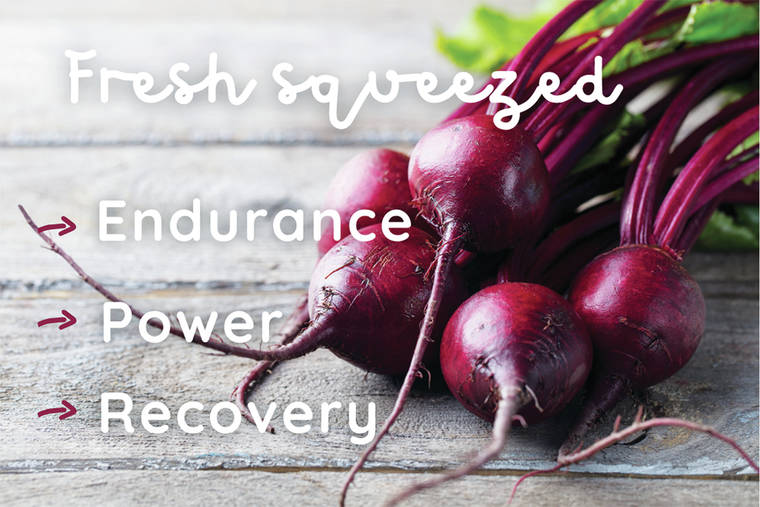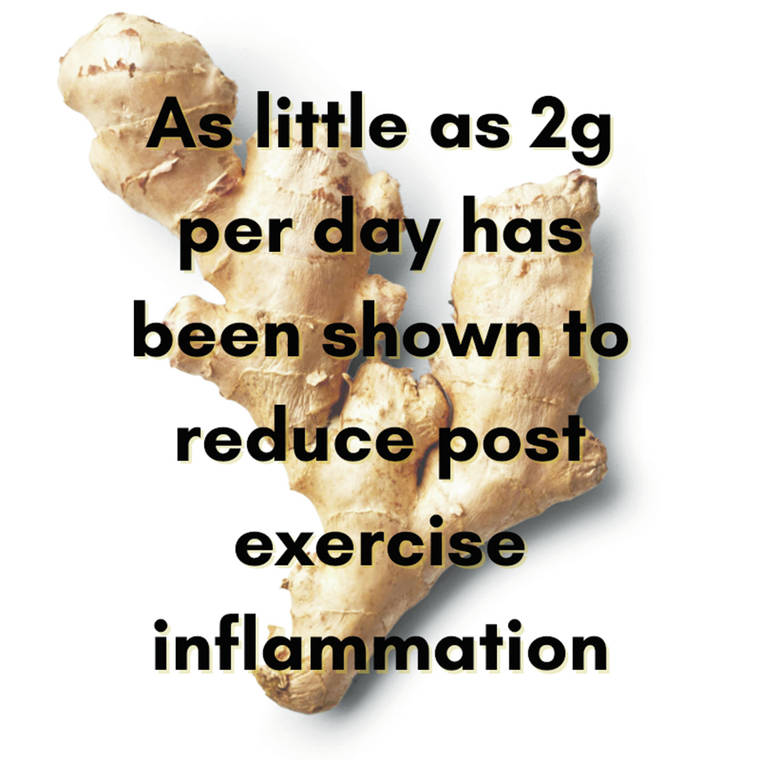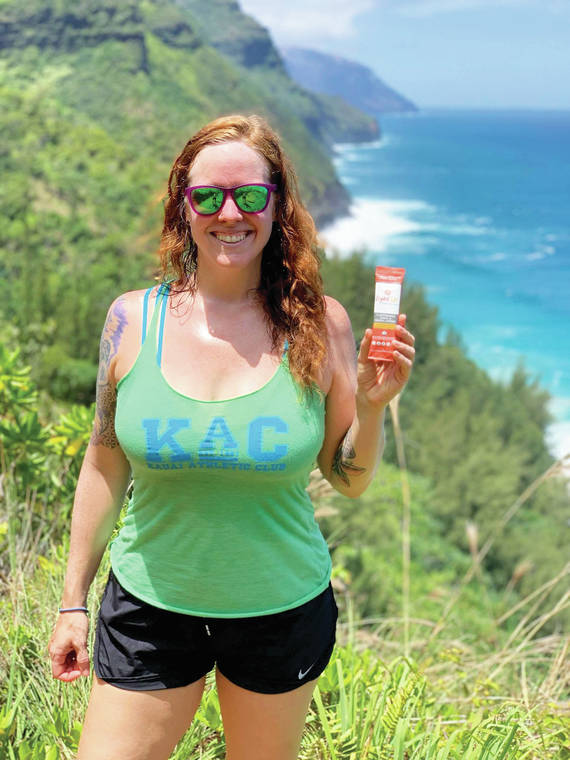In the fitness industry I’ve heard of just about every ergogenic supplement out there marketed towards athletes. Strikingly, most supplement shops are not marketing these pills, powders and drinks to professional athletes.
No, it’s the common gym-goer, the recreational athlete and the weekend warrior who are cleverly targeted with phrases like “shred and sculpt!”, “boost your metabolism!” and “increase your energy!” I’m not going to list all the fillers, preservatives and colors in performance supplements on the market. My goal in writing this is simply to open the discussion up regarding dietary supplementation from whole-plant foods instead. I’d like to ask the reader interested in improving their athletic performance, “How important is quality, and how can you clean up your supplement shelf?”
Decluttering our nutrition
“My body deserves the highest quality. I want clean, organic, effective, nutrient-dense fuel without any added junk!” I think more people would share that sentiment if not for the huge convenience dangled like a carrot before us by most supplement companies. “Look,” they tell us, “you don’t have to do the research to figure out how to get all the best performance-enhancing vitamins and minerals from food, because we’ve put all the things an athlete wants into these easy-to-take pills, powders, shakes and bars.”
I agree that in a way that carrot is gratifying. I’m not going to argue about the convenience factor. And I am not saying that all supplements out there have long, seemingly-foreign ingredient lists, either. Some companies are committed to using whole foods that are sourced naturally. I am going to use the word “many” here. “Many” big companies in the supplement industry have the following objective: to produce the most amount of product in the least amount of time for the least amount of money and reach the largest demographic. Keeping that in mind, they tend to use synthetic, mass-produced vitamins, cheaply-sourced minerals, binding agents, colors, fillers and a ton of preservatives. OK, enough about products on the market. For now I’d rather look at just a few, nutrient-dense superfoods that are being studied for their performance and recovery benefits.
Beet fatigue
Beets have been shown to increase blood nitric-oxide (NO) concentrations, which is linked to vasodilation, blood flow and beneficial impacts on muscle contraction. In short, beets are muscle-fatigue fighters.
Both endurance athletes like runners and those training for strength like weightlifters will see improvement in their performance when muscles can contract for longer periods before fatigue.
This also has significant impacts on metabolism during exercise.
Findings from various clinical studies show increased power- generation, muscular endurance, and post-exercise muscle regeneration with beet juice supplementation. (Domínguez, R., Maté-Muñoz, J.L., Cuenca, E. et. al. “Effects of Beetroot Juice Supplementation on Intermittent High-Intensity Exercise Efforts,” Journal of the International Society of Sports Nutrition, 15, 2 (2018).
Ginger for
post-exercise pain
You’re probably familiar with the use of ginger to ease GI discomfort and soothe a sore stomach. But there has been growing interest in the research of ginger as a dietary supplement for athletes, specifically as an analgesic. Inflammation is a common cause of aches, pains and general soreness after exercise. The longer it takes to recover, the longer it takes to get back to training. Some athletes use NSAIDS (nonsteroidal anti-inflammatory drugs) to decrease pain but, unfortunately, these carry a long list of possible adverse side effects. Ginger supplementation has been shown to reduce the inflammatory response to exercise, decrease soreness and aid in muscle recovery after
exercise. (Wilson, Patrick B. “Ginger (Zingiber officinale) as an Analgesic and Ergogenic Aid in Sport,” The Journal of Strength &Conditioning Research: October 2015 – Volume 29 – Issue 10 – p 2980-2995). Our tropical climate just so happens to be perfect for growing ginger. In fact, it can be grown all year long.
Pre-workout craze
Lately I’ve noticed that almost everyone in the gym uses a pre-workout supplement. What’s a pre-workout? It’s a big category, but most are intended to increase energy and performance during a specific bout of exercise. And usually the No. 1 ingredient is caffeine. Taking a pre-workout may get you revved up for activity, but it usually comes at a cost. Some adverse effects include jitters, restlessness, raised blood pressure, water retention and tingling in the hands and feet, to name a few. Often these side effects are related to excessive doses. For example, a cup of coffee might contain about 90-100 mg of caffeine, but pre-workout supplements can contain up to 500mg in a suggested serving. We don’t need stimulants to benefit from working out, but athletes are always looking for ways to increase energy for exercise.
Who doesn’t love feeling pumped up for an activity, or the feeling of pride in those few extra reps? So for those looking for cleaner pre-workout options, consider a few herbal alternatives that have gained increasing attention: ginseng, yerba mate and green tea. It’s important that when considering any ergogenic aids, even “natural” ones, to consult your doctor, because stimulants can affect people, especially those with pre-existing conditions, in different ways. Some consider green tea and yerba mate to be “cleaner” stimulants due to the smaller amounts of caffeine compared to coffee and energy drinks, the lower acidity, and the vitamins and antioxidants that come from them. (Sellami, M., Slimeni, O., Pokrywka, A. et al. “Herbal Medicine for Sports: A Review.” Journal of the International Society of Sports Nurition 15, 14 (2018). Ginseng is not a caffeine source, but has been shown to increase stamina, alertness and focus in some studies. It’s also linked to increased immune defense against environmental stress.
Starting from scratch
If you are interested in trying cleaner, whole-food supplementation for athletic performance, you may choose to make one or two small changes at a time. If you have time to extract these superfood compounds directly from fruits and veggies by juicing or blending, that’s great. If convenience is a priority, you may consider letting local companies do some of the heavy lifting for you. One of my favorite spots to get highly-concentrated superfoods is Kaua‘i Juice Co. located in Kilauea, Kapa‘a and Po‘ipu. The menu includes energizing elixirs, junk-free protein blends, hydrating recovery boosters and super-potent, pocket-sized shots like the “Ginger Snap.”
The whole operation is run on a zero-waste policy, and they reward customers for recycling their glass containers. That means no plastic and no trash. Oh yes, and they source their organic ingredients from local growers. There are more than a few small businesses here on island that offer farm-to-fitness supplement options for active people. In fact, my favorite clean alternative to mainstream pre-workout powders is a product created here on Kaua‘i by local organic alchemist Allison Jacobson. “Light Up” is a powerhouse of organic adaptogens and superfoods specifically put together to enhance athletic performance. The caffeine content is low and the formula is meant to support the body’s natural energy-manufacturing plant, the adrenal glands. You can see the full ingredient list and learn more on the website, inspireorganics.life.
Scratching the surface
I’ve only just scratched the surface here. There are so many superfoods being studied for their ergogenic properties. Using plants to enhance performance is not just a trend. As more light is shed on the potential side effects, chemical additives and lack of regulation in the dietary-supplement industry, it becomes clear that nature does it best. My hope is that whether you want to run in the Kaua‘i Marathon, surf all day, compete in weightlifting, or simply push your body, you will choose supplementation that supports your goal with real, fresh-food ingredients.
Look for junk-free nutrition labels, locally-grown superfoods and small businesses that practice sustainability. I believe the human body already has the innate the potential to be strong and exceptionally fit. Sports supplements should support the body’s natural, incredible mechanisms for producing energy, building muscle mass and recovering. So I am wary of products that make grand promises to deliver a shredded body in a scoop. When the convenience carrot dangling just overhead looks too good to be true, it often is. My advice: swap it for a real one.
•••
Cynthia Fowler is a certified personal trainer (NASM), corrective exercise specialist (NASM), registered vinyasa yoga teacher (RYT 200), certified Enhance fitness teacher, group exercise instructor (TRX, indoor cycling, HIIT, SMR, etc), owner of FoundationUp Fitness, blogger, and health coach. She can be contacted through her website at foundationupfitness.com or directly at Cynthia@fullyfreely.com.







